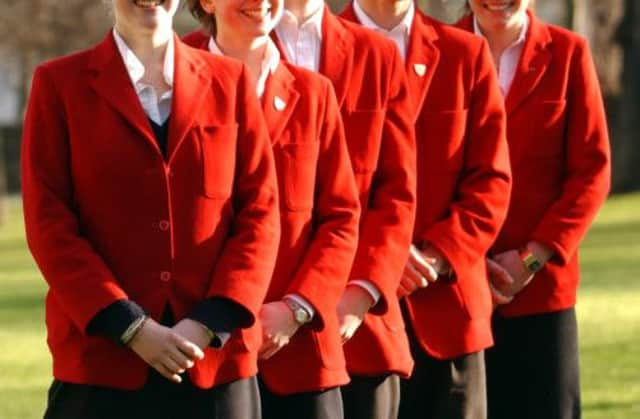Leaders: When charity begins at private school


The schools maintain that they have long provided bursaries for this purpose. The OSCR regime was not therefore the introduction of a new principle for entry into these schools but a means to ensure that entry requirements for the disadvantaged were adequate and that they were being observed.
But the system does not appear to be working as well as it should. A growing number of schools have been warned by OSCR that they risk losing charitable status – a threat that imperils their future financing. Now Loretto, one of Scotland’s most prestigious private schools, has been told it risks losing its charitable status for failing to provide enough help with its fees. Specifically, the OSCR’s investigation concluded it had “insufficient measures” in place to widen access for pupils from poorer backgrounds.
Advertisement
Hide AdAdvertisement
Hide AdThe school’s commitment to this area is not in doubt: in 2012-13, 91 pupils (14.7 per cent of the school roll) received means-tested support totalling more than £756,000. Non means-tested discounts benefited 338 pupils in the 2012-13 year, with the total value of the awards amounting to £1,452,181. This represented 58 per cent of the school roll and 14.7 per cent of the school’s available income. However, the OSCR ruled these remissions were “low value” and that just one child received the full cost of the fees.
Loretto is not alone in receiving this warning shot. In 2011, four leading private schools were subject to a three-year investigation by OSCR. This may fuel the suspicions of some that the regulator is pursuing a political vendetta and that its inspection process is a cover for a campaign to bear down on private education.
However, this would be to overlook that in its latest round of results, eight schools have passed the test to keep their charitable status. And OSCR insists that as the regulator it has a duty to ensure that the requirements of the legislation are met.
The incidence of warnings suggest some private schools are sailing too close to the wind of compliance. The requirements have been known for some time and schools have had ample opportunity to adjust their policies to ensure they comply. The embarrassment of public warning can be readily avoided by ensuring their policies comfortably meet the requirements and need not trigger a “comply or else” admonition.
The OSCR, for its part, also needs to ensure its rules are clear, transparent, unambiguous and reasonably enforceable – requirements that attend all good regulation. If there are issues of interpretation or ambiguities to be clarified, it should work with schools to ensure these are remedied. Private schools – and parents who fund them – make a substantial contribution to the education of Scotland’s children.
A Commonwealth curiosity
QUITE why Yahya Jammeh, president of the west African state of The Gambia, has suddenly decided to withdraw from the Commonwealth is a mystery, not least to the Commonwealth itself. He has branded the 54-nation grouping as a “neo-colonial institution” and said his country “will never be a party to any institution that represents an extension of colonialism”. No further explanation has been given on state television, no formal letter has been sent to the Commonwealth, and indeed, it only learned of the announcement through TV.
The abrupt withdrawal, which may be due to domestic political manoeuvring by the government, is to be regretted, not least as it deprives next year’s Commonwealth Games in Glasgow of a respected competitor.
The regime of President Jammeh, who has been in power since 1994, has not been without controversy. Earlier this year, a Foreign Office report singled out The Gambia for its human rights record, citing unlawful detention, illegal closures of newspapers and discrimination against minority groups. Last year he vowed to stay in power for “a billion years” if God so willed. He has declared at the UN that homosexuality was one of the three “biggest threats to human existence”. Having threatened in 2008 to behead homosexuals, he has also claimed he could cure Aids in three days with a secret herbal body rub and bananas.
Advertisement
Hide AdAdvertisement
Hide AdThere is no evidence of any upsurge of anti-Commonwealth feeling across the country as a whole. The hope now is that contact can be established between the president’s office to determine if there is any particular or specific problem that can be clarified or addressed.